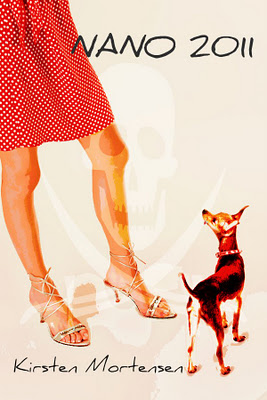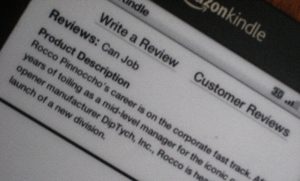Via the top-shelf blogger Passive Guy, here’s a top-shelf post by Mike Stackpole about Amazon and the book biz.
One of the points Stackpole makes is that as an online/digitally savvy company, Amazon has real time access to data about what its customers are buying — i.e., “statistics and analysis that tells them which authors are trending or about to trend.”
Amazon can act on those stats to “cherry pick talent and promote their ‘discoveries.'”
Amazon also has the ability to promote digital sales of books and later on produce a print compilation of digital novels, offering a unique print product. This is actually stated as a plan in their press release.
Good on Amazon. And I agree. This gives them a huge advantage over brick & mortar publishers/distributors.
But I do wish one thing: that Amazon would share more of its statistics with its writers.
As Passive Guy writes in his post, indie authors are in many respects Amazon’s partners in the e-publishing trend. He also writes:
Indie publishing has changed authors from helpless little children who cry and wait for their agent or publisher to come and wipe their noses into savvy and intelligent entrepreneurs, people who know how to do things for themselves.
To which I add: entrepreneurs need data.
I’d like to know how many clicks I get on my stuff on Amazon — my book pages, my author page.
I’d like to know how many book samples are being downloaded.
I’d like to know what percent of sample downloads convert to sales.
I’d like to know when/where people abandon my page or for that matter quit reading the sample.
And I’d like to know how all those stats compare to data about other authors’ Amazon activity.
I mean, think about it. For indie authors, Amazon pages and samples are marketing tools.
With the right kind of data, we’d better understand how well those tools are working — or how they can be tweaked.
Of course Amazon has reason to keep its data inside its kimono: competitors. But there’s a workaround, too: just release it in the form of trends and percentages rather than raw numbers.
So how about it Amazon? Please? Pretty please?


